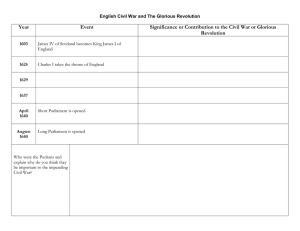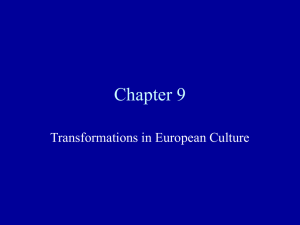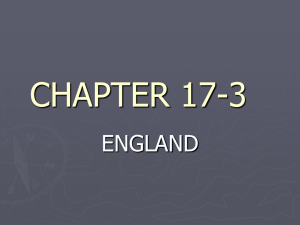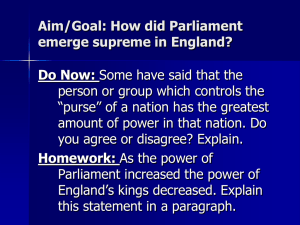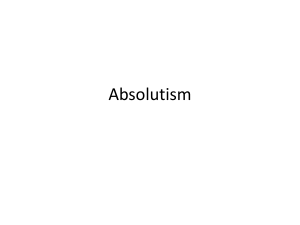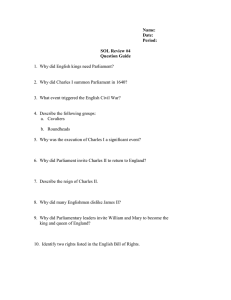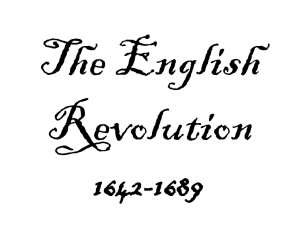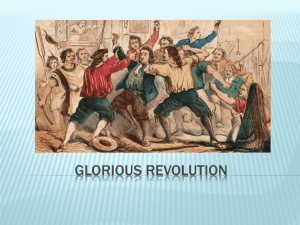Parliament Triumphs in England
advertisement
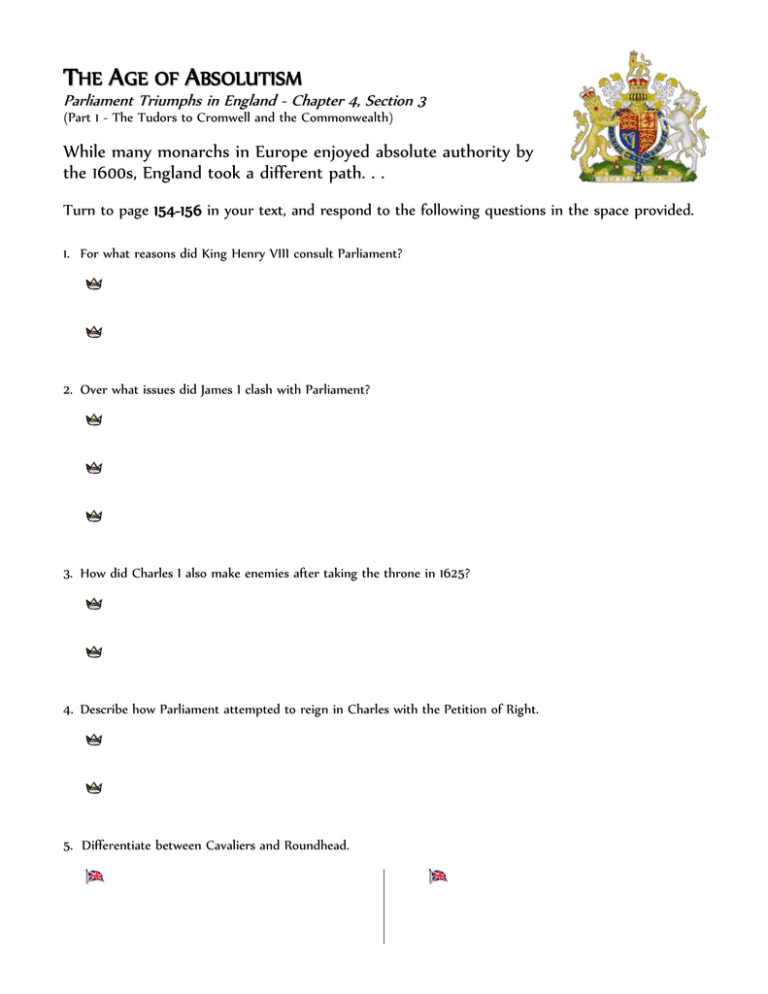
THE AGE OF ABSOLUTISM Parliament Triumphs in England - Chapter 4, Section 3 (Part 1 - The Tudors to Cromwell and the Commonwealth) While many monarchs in Europe enjoyed absolute authority by the 1600s, England took a different path. . . Turn to page 154-156 in your text, and respond to the following questions in the space provided. 1. For what reasons did King Henry VIII consult Parliament? 2. Over what issues did James I clash with Parliament? 3. How did Charles I also make enemies after taking the throne in 1625? 4. Describe how Parliament attempted to reign in Charles with the Petition of Right. 5. Differentiate between Cavaliers and Roundhead. t Refer to pages 156-158, and respond to the following additional questions. 6. Describe the core dispute between Charles I and Parliament that produced The English Civil War. 7. Explain the significance of the trial and execution of King Charles I. 8. What steps were taken by Parliament following the death of Charles I? 9. What threats or challenges faced England’s new leader, Oliver Cromwell? 10. Describe the popular and unpopular legacy of Puritan leadership under “Lord Protector” Oliver Cromwell. THE AGE OF ABSOLUTISM Parliament Triumphs in England - Chapter 4, Section 3 (Part 2 – From Restoration to Glorious Revolution) While many monarchs in Europe enjoyed absolute authority by the 1600s, England took a different path. . . Turn to page 158-160 in your text, and respond to the following questions in the space provided. 11. Why was Charles II popular and more successful than his father? 12. Why did James II encounter dissent, and what were the consequences of his actions? 13. Describe in detail the English Bill of Rights. Turn to page 160-161 in your text, and respond to the following questions in the space provided. 14. How did the Glorious Revolution transform England’s political system? 15. Identify and describe the three major political institutions which emerged following the Glorious Revolution. 1) __________________________ - 2) __________________________ - 3) __________________________ - 16. Why, even following the Glorious Revolution, would it be accurate to describe Britain as an oligarchy?




